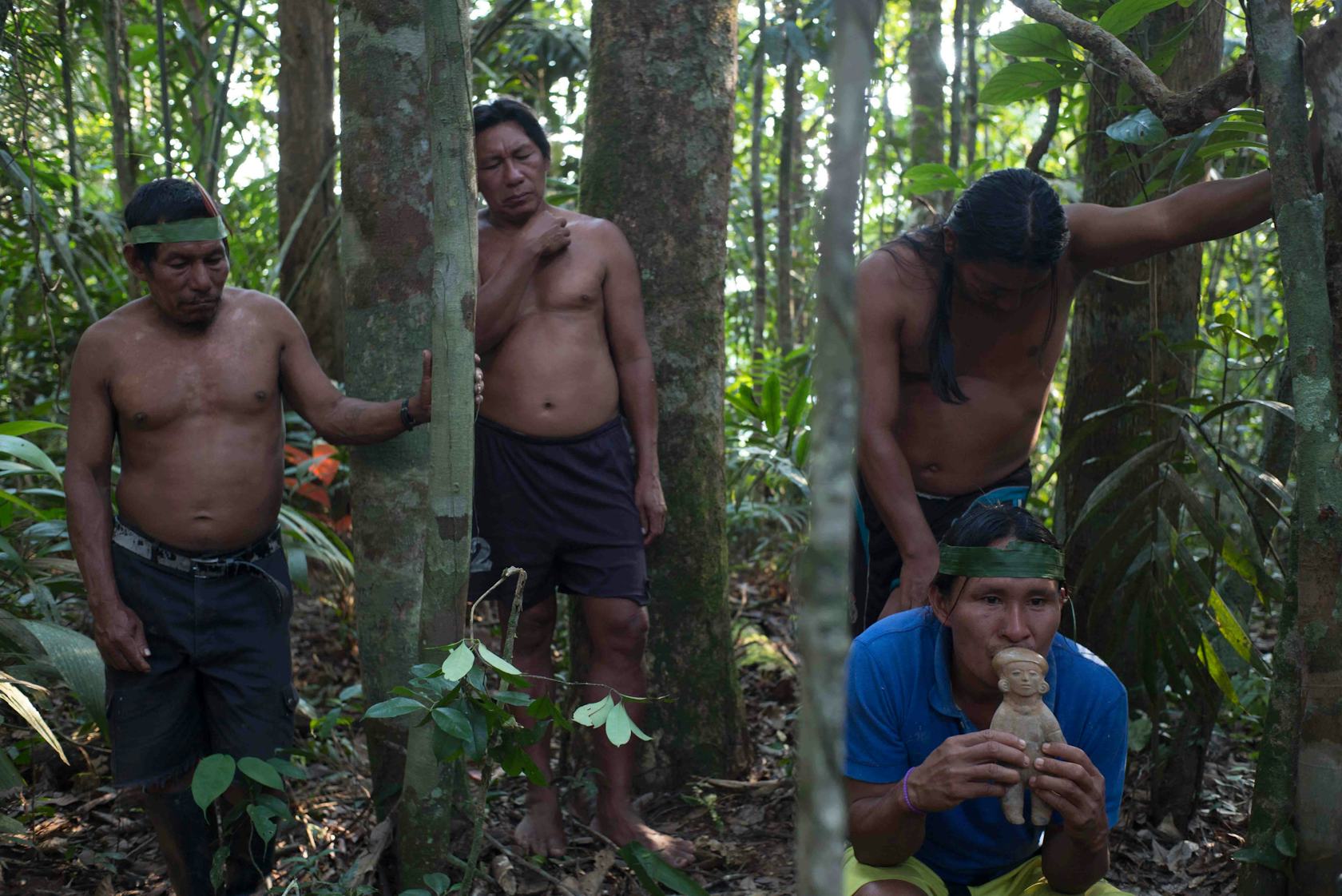THE WITNESS
Can conscious listening spark radical change?
The Witness is a process opera weaving together the Earth's changing messages and the voices of indigenous wisdom holders. This cooperative practice gathers a network of communities closely following the manifestations of the planetary paradigm shift perceptible in the territory they inhabit. Community members, researchers and artists from all regions of the world develop field projects that explore, document, and share local eco-social relationships and stories.
Each year, a six-month edition spanning from the March equinox to the September equinox, involving the sharing of research fragments, monthly translocal conversations and Openlabs, highlights new projects joining The Witness.
Since 2018, The Witness has grown as research groups from different parts of the world working at the intersection of art, research and community engagement have joined and collaborations have developed between participants. Eight years later, The Witness works with a network of 134 artists, researchers and activists from 21 communities in 15 countries.

ASPIRATION
The task of spiritual companionship is dwelling-together-with and losing our forms generously in order to find other ways of with-nessing a troubled world. — Báyò Akómoláfé
The Witness nurtures and celebrates the diversity of worldviews by publishing and sharing weekly photo, audio, and video fragments sent by artists, researchers and local inhabitants bearing wit(h)ness to the situation on the ground, amplifies the voices of the most radical listeners and deepens solidarity between them by facilitating the space and place for active, long-term translocal cooperation, and imagines new forms of activism and new ways of serving the times in which we live by organizing Openlabs with communities, universities and festivals around the world.

SEED AND SCORE
What is heard is changed by listening and changes the listener. — Pauline Oliveros
At the height of great unrest in the 1960s, legendary composer Pauline Oliveros retreated from public performing and dove into sound experiments meant to soothe and heal. She later coined Deep Listening®, an embodied practice in which we intentionally and actively tune into, versus tune out of, the sounds around and within us.
In 1989, Oliveros composed The Witness, A Solo Duet with an Imaginary Partner, a Duo, or an Ensemble, three open strategies for listening, attuning, and responding to ourselves and to one another. The score, along with Oliveros’ philosophies of community and collaboration and the practice and process of Deep Listening®, have inspired a vast constellation of projects over the decades. The Witness score is both the seed of The Witness and the guiding principle around which its research projects are organized.
Oliveros’ plea to listen deeply takes on greater urgency today. Animal populations are collapsing, plants are under extreme stress, the seabed and its ecosystems are being devastated, ravaging fires are raging around the world, a million species are threatened with extinction, and industrial extractions and emissions are having a major impact on human life. The Witness provides a critical tool that these times demand in order to guide us toward becoming attuned to, rather than dominating over, the biosphere.

GUIDING PRINCIPLES
We honor each of these guiding principles equally and without compromise.
We advocate a strong, living embodiment of humans' deep listening to themselves and to the more-than-humans.
We believe in empowering communities, encouraging them to share with each other and the world the changes and transitions they experience, and the resilience and wisdom they generate or reactivate as our consciousness evolves and our ways of coexisting change locally and globally.
The Witness is a collaborative practice and a co-creative assemblage that steers clear of cultural consumption, the art market and the entertainment industry. At The Witness we support Indigenous-led storytelling, cultural practices, and creative sovereignty. Communities must remain the rightful stewards of their cultural expressions.